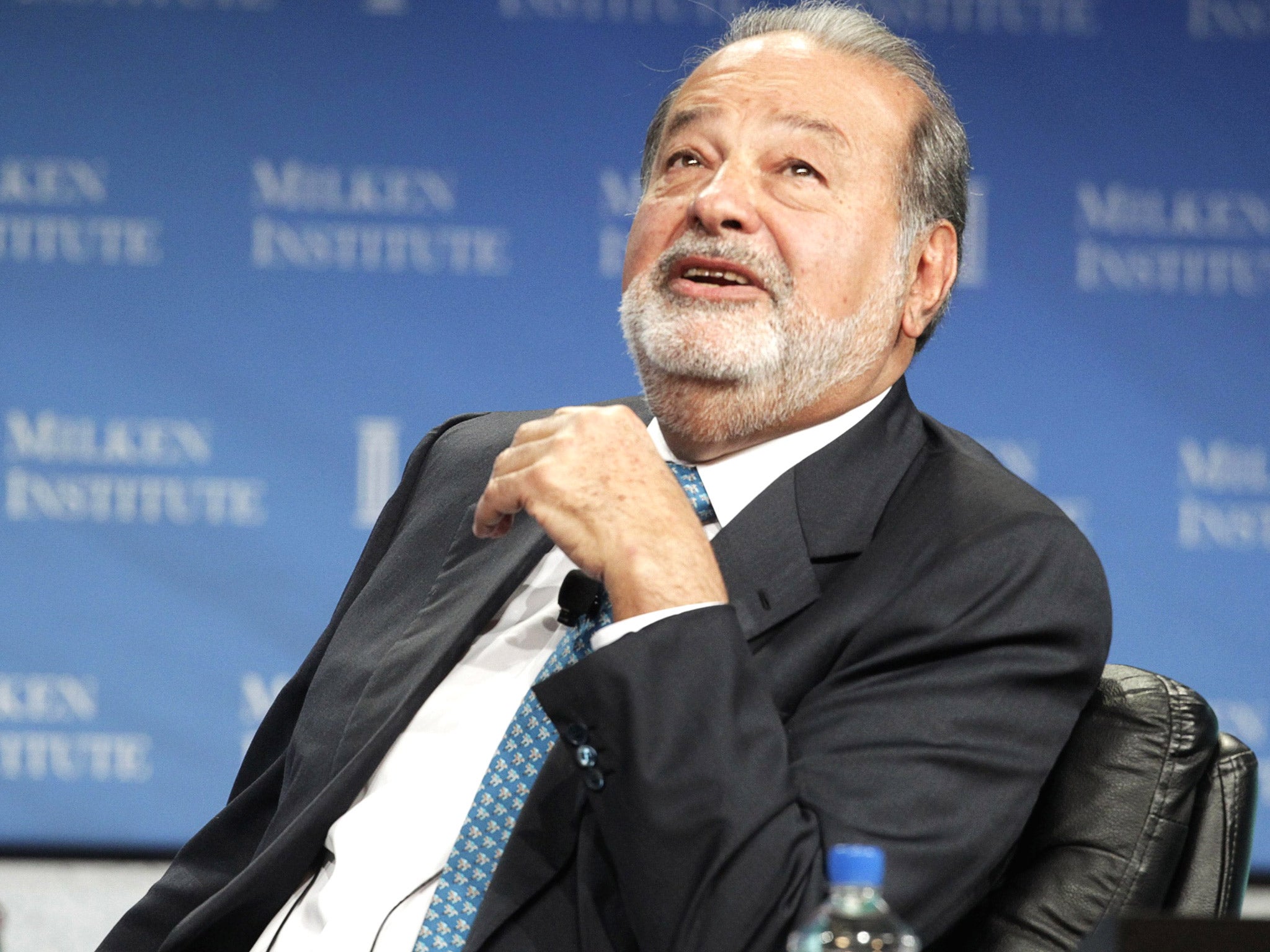The Mexican telecoms vote which slims the fortune of world’s richest man, Carlos Slim
Law targets business magnate’s near monopoly of country’s phone market

Your support helps us to tell the story
From reproductive rights to climate change to Big Tech, The Independent is on the ground when the story is developing. Whether it's investigating the financials of Elon Musk's pro-Trump PAC or producing our latest documentary, 'The A Word', which shines a light on the American women fighting for reproductive rights, we know how important it is to parse out the facts from the messaging.
At such a critical moment in US history, we need reporters on the ground. Your donation allows us to keep sending journalists to speak to both sides of the story.
The Independent is trusted by Americans across the entire political spectrum. And unlike many other quality news outlets, we choose not to lock Americans out of our reporting and analysis with paywalls. We believe quality journalism should be available to everyone, paid for by those who can afford it.
Your support makes all the difference.Mexico’s senate has overwhelmingly voted for an overhaul of the country’s telecoms sector, a decision that could wipe several billion dollars off the fortune of the world’s richest man.
Intended to curb Carlos Slim’s domination of the sector and reduce retail prices through increased competition, the bill’s key measure caps market share for any one business at 50 per cent and gives the government powers to sell off assets of any company that exceeds that limit.
Mr Slim – who is worth an estimated $67.2bn according to Forbes magazine, – owns América Movil which accounts for around 70 per cent of Mexico’s mobile phone market and 80 per cent of the nation’s landlines. It has often been accused of charging exorbitant rates – broadband in Mexico is among the most expensive in the world, starting at £60 a month – and using hardball tactics to hobble its rivals.
After lengthy negotiations between President Enrique Peña Nieto’s Institutional Revolutionary Party (PRI by its Spanish initials) and the opposition, the bill breezed through the senate with 108 votes for and just three against. It has already been approved by the lower house and must now receive the backing of a majority of the country’s 31 state legislatures, and Mexico City’s assembly.
“We are touching something that for a long time was thought to be untouchable – the monopolies,” said left-wing senator Alejandra Barrales.
The son of Maronite immigrants from the Lebanon, Mr Slim, 73, oversaw the mushrooming of his father’s retail and property business as soon as he took it over in the 1960s, hoovering up assets on the cheap during downturns. In 1990, as President Carlos Salinas embarked on a series of Thatcher-inspired privatisations, Mr Slim snapped up Telmex, the creaking state-run telephone company that routinely left customers waiting years to be connected to the network.
He then used it as a platform to build up a telecoms and retail empire that spans the US and most of Latin America. Forbes has consistently named him the world’s richest person since 2010.
Despite his wealth, the reclusive tycoon, who rarely makes public statements, leads a relatively modest lifestyle. He has lived in the same six-bedroom house for 40 years and famously drives his own Mercedes.
But critics say Mr Slim’s success has come at huge cost to the Mexican economy, which, despite being the world’s 13th largest, is dominated by a small number of spectacularly rich families. No one is more dominant than Mr Slim, whose interests account for roughly 40 per cent of the country’s stock market.
The telecoms shake-up is the latest bold move by Mr Peña Nieto aimed at breaking with his party’s past. During the PRI’s previous term in power, which spanned seven decades until 2000, it was accused of corruption.
Join our commenting forum
Join thought-provoking conversations, follow other Independent readers and see their replies
Comments